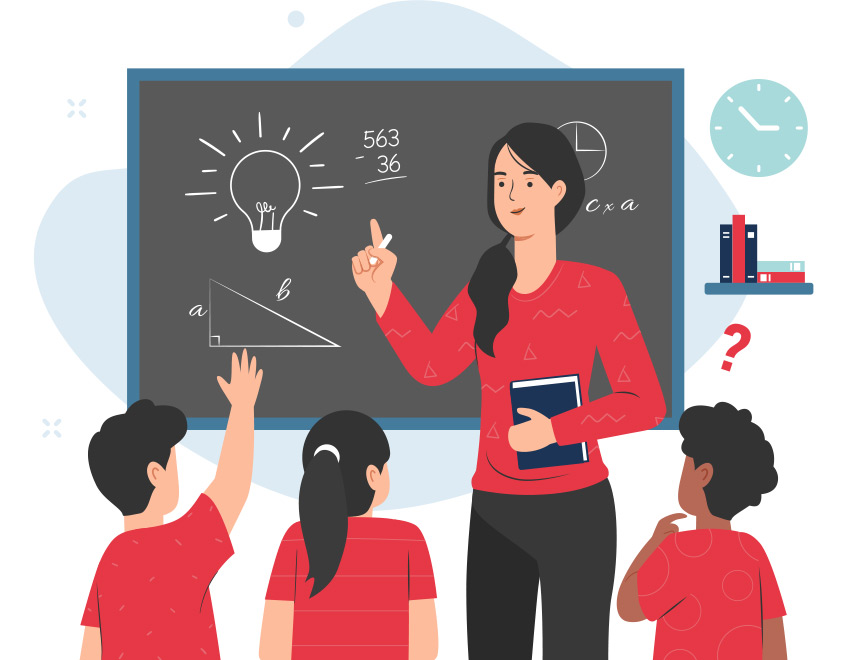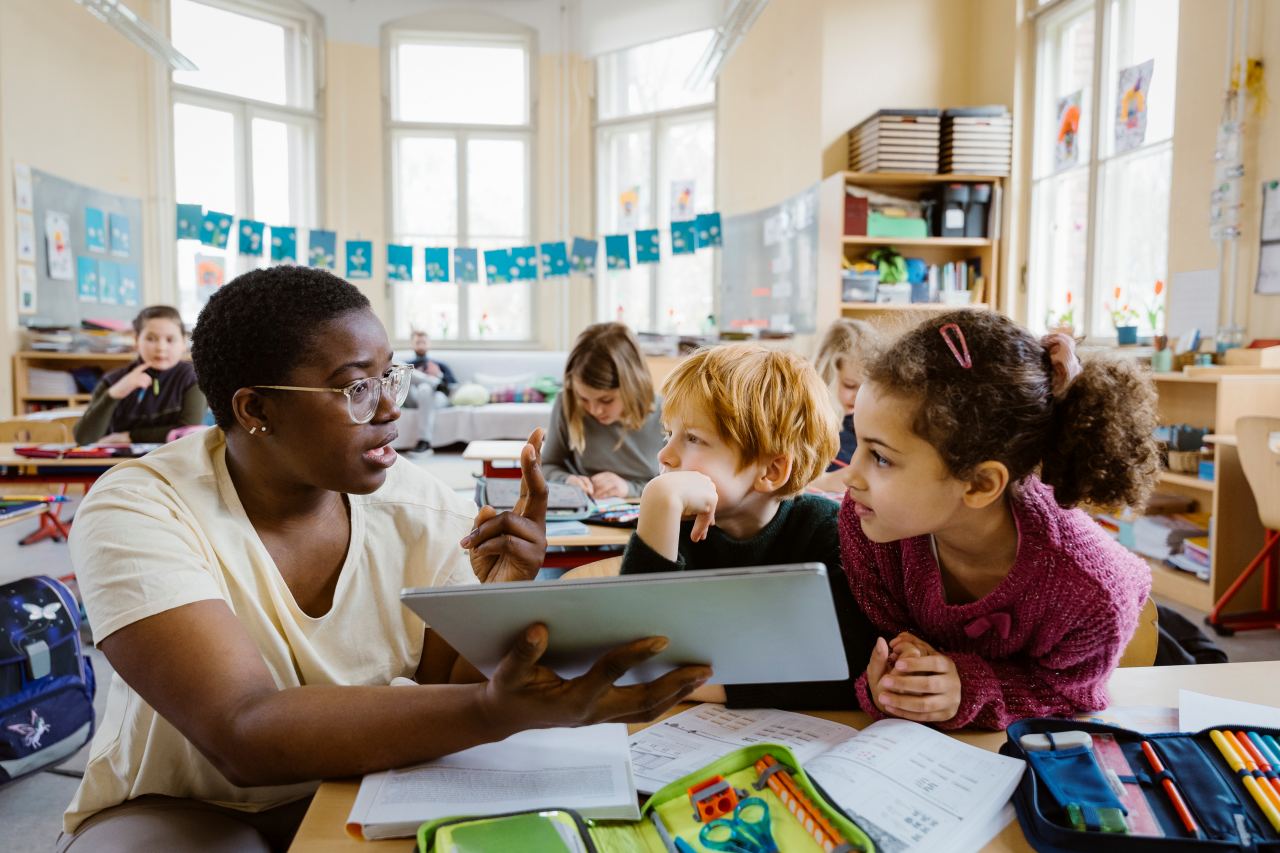Discover the Best Primary Science Tuition Singapore for Your Learning Journey
Discover the Best Primary Science Tuition Singapore for Your Learning Journey
Blog Article
A Comprehensive Overview to the Different Knowing Approaches in Main Scientific Research Instruction
The expedition of diverse discovering methods in main scientific research direction offers a chance for teachers to improve trainee engagement and understanding significantly. By taking a look at hands-on understanding techniques, inquiry-based methods, and joint methods, we can identify efficient techniques that cater to different discovering designs.

Hands-On Understanding Techniques
Hands-on knowing techniques play an essential duty in key science direction, engaging trainees in active exploration and experimentation. These techniques permit learners to communicate straight with materials and phenomena, cultivating a deeper understanding of clinical concepts. By utilizing manipulatives, models, and real-life experiments, instructors develop a setting where pupils can observe, hypothesize, and evaluate their concepts.
Such strategies not just improve understanding but also grow vital thinking and problem-solving skills. When pupils get involved in tasks like building easy makers, planting seeds, or conducting chain reactions, they are urged to ask concerns and look for solutions via their very own observations. This experiential approach aids to debunk intricate clinical concepts, making them extra easily accessible and relatable.
Moreover, hands-on understanding promotes cooperation amongst peers, as trainees typically function in teams to perform experiments or share searchings for. This synergy not only enhances their understanding experience but also establishes crucial social abilities. Eventually, integrating hands-on strategies in primary scientific research guideline cultivates a long-lasting love of understanding and inquisitiveness regarding the environment, laying a strong foundation for future scholastic quests in scientific research and beyond.
Inquiry-Based Knowing
Inquiry-based discovering is an instructional technique that motivates students to ask concerns, examine phenomena, and construct their very own understanding of scientific principles. This technique changes the emphasis from typical teacher-led direction to an extra student-centered experience, where learners take the effort in their educational trip. By promoting inquisitiveness, inquiry-based understanding promotes much deeper involvement with the material, permitting pupils to check out topics in a meaningful context.
In technique, this approach often entails hands-on experiments, monitorings, and essential thinking activities that align very closely with the clinical approach. Trainees are encouraged to create hypotheses, design investigations, and analyze information, which grows crucial abilities such as problem-solving and logical reasoning. The function of the instructor in this structure is to help with expedition, directing students through the query process while motivating independent idea and cooperation.
Moreover, inquiry-based knowing supports a sense of possession over the knowing process, motivating trainees to pursue knowledge actively. This technique not just enhances understanding of clinical concepts however also promotes a lifelong love for learning, outfitting pupils with the abilities required to navigate a significantly complicated globe.
Collaborative Learning Approaches
Collaborative understanding techniques equip students to take part in purposeful communications with peers, promoting a common obligation for their educational end results. In main science direction, these strategies encourage students to interact to explore clinical principles, solve problems, and perform experiments (primary science tuition Singapore). By getting involved in group activities, students can leverage varied point of views, permitting for richer understanding and retention of clinical knowledge
One secret facet of collaborative discovering is the focus on interaction skills. Trainees need to articulate their thoughts, listen proactively to others, and negotiate ideas, all of which are essential proficiencies in both academic and description real-world contexts. This social communication not just improves their understanding of scientific principles however likewise promotes synergy and dispute resolution abilities.
Furthermore, collective knowing typically results in raised motivation and engagement. When trainees see the worth of their payments within a group, they are most likely to take possession of their understanding trip. Teachers can promote this process by making organized group tasks that straighten with educational program goals while providing advice on efficient partnership methods. On the whole, including joint discovering strategies in primary science guideline grows a dynamic learning setting that prepares students for future scholastic and social challenges.
Modern Technology Assimilation in Science
The integration of modern technology in main science guideline boosts discovering experiences by giving ingenious devices and sources that sustain numerous teaching methodologies, consisting of collective understanding - primary science tuition Singapore. Making use of electronic platforms, simulations, and interactive applications enables trainees to involve deeply with clinical concepts, helping with a more hands-on technique to learning
Online research laboratories, as an example, enable learners to carry out experiments safely and efficiently, advertising inquiry-based learning. These tools can imitate real-world scientific circumstances, enabling students to imagine complex processes that would certainly be tough to replicate in a conventional class setting. Technology cultivates communication and collaboration amongst students, as they can share findings and function with each other on projects via on the internet systems.
In addition, multimedia presentations and academic videos can improve lessons by dealing with diverse discovering designs, making abstract concepts a lot more easily accessible. Data evaluation devices additionally equip students to collect and translate scientific information, reinforcing important thinking skills. On the whole, the tactical consolidation of technology in main scientific research guideline not only enhances interaction yet also prepares trainees for a highly advanced society, equipping them with necessary abilities for future clinical ventures.
Differentiated Instruction Strategies
Differentiated guideline strategies are crucial for dealing with the varied needs of learners in main scientific research education. These methods enable teachers to tailor their teaching techniques to suit varying capabilities, rate of interests, and finding out designs within the class. By employing separated guideline, educators can create an inclusive environment that promotes interaction and visit this website improves understanding of scientific ideas.
One efficient approach is to make use of adaptable organizing, which permits pupils to team up with peers at comparable ability levels or with differing point of views. This technique motivates peer discovering and advertises essential reasoning. In addition, supplying choices in jobs can empower trainees, permitting them to choose projects that reverberate with their passions while still fulfilling curricular goals.
Furthermore, incorporating tiered assignments is an additional valuable strategy. Deliberately jobs with varying degrees of intricacy, educators can ensure that all pupils are properly challenged, despite their efficiency. Utilizing developmental evaluations to evaluate recognizing additional enables educators to change their instructional techniques dynamically, guaranteeing that each student gets the support they require.
Ultimately, applying distinguished guideline methods in primary scientific research education not just boosts trainee learning results yet likewise grows an enthusiasm Learn More Here for scientific research, preparing students for future scholastic searches.

Verdict
In summary, reliable main scientific research direction demands a diverse strategy that includes hands-on learning, inquiry-based approaches, and collective methods. The integration of technology and differentiated direction further satisfies varied learning designs, cultivating an environment helpful to expedition and crucial reasoning. By implementing these techniques, instructors can enhance trainee interaction and understanding, ultimately nurturing a lifelong interest for scientific research and inquiry. Such detailed techniques are important for establishing educated and interested future scientists.
The expedition of varied discovering techniques in key scientific research direction provides a chance for teachers to boost pupil involvement and understanding dramatically.Hands-on understanding strategies play an essential function in main science instruction, engaging pupils in energetic exploration and testing.Inquiry-based knowing is an instructional approach that urges trainees to ask concerns, investigate sensations, and build their own understanding of clinical ideas.Collaborative understanding strategies empower students to involve in significant communications with peers, promoting a shared duty for their academic outcomes. On the whole, integrating collaborative discovering methods in key science instruction grows a dynamic discovering environment that prepares pupils for future academic and social obstacles.
Report this page